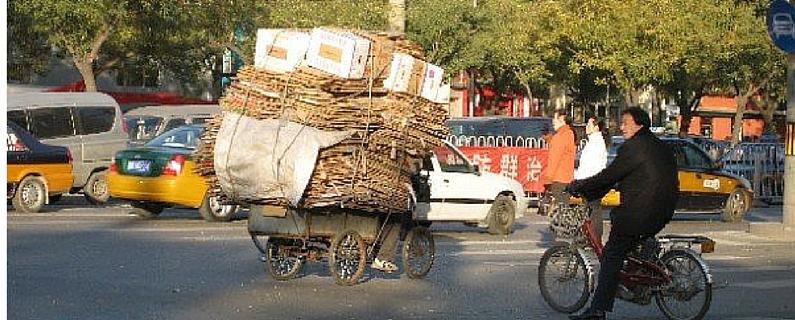If you trust the opinions of Justin Yifu Lin, there’s never been a better time to invest in China’s growing economy. Yes, the reference to China’s “growing” economy is intentional, as Lin asserts the country has more than enough resource to sustain it through its transition from a manufacturing-based to a consumer-based economy. In fact, back in 2011, Lin presented a paper detailing the reasons why China would retain its position at the head at the global economic table. His evaluation of the country’s economic evolution then tracks with eery accuracy the financial and political fluctuations the nation is currently experiencing.
Global Economic Guru
Lin is not inconsequential in the world of global economies. In 1979, the native of Taiwan, China, swam the 2,000-meter tidal-straight to join mainland China’s new economic revolution. (That was the year China opened its first “Special Economic Zone” and stepped cautiously into the international industrial community.) A chance translating encounter with Nobel Prize winning economist Theodore Schultz resulted in a scholarship to the University of Chicago, where he obtained his Ph.D. in Economics in 1986. Upon returning to China, Lin was actively engaged in building the burgeoning Chinese economy. In 1994, he helped to establish the China Center for Economic Research, which became influential in the development of China’s economic policies.
In 2008, Lin was appointed as the Chief Economist and Senior Vice-President of the World Bank, positions he held for four years. As the head of the Bank’s research, prospects (global monitoring and projections) and data departments, Lin directed the efforts of almost 300 economists, researchers and statisticians who were focused on reducing poverty and improving global development. The theories of Lin and his team were game-changers for developing nations in Asia and Africa that were struggling with abject, nation-wide poverty. He returned to China in 2012 at the close of his World Bank tenure, and is still a globally respected voice in the field of international economics.
Speaking in January in Moscow, Lin continues to express a strong opinion that China is merely going through the growing pains that are typical of every nation that moves from a middle-income country to a world leader country. Lin sees that China’s rapid advancement over the past 30 years was the consequence of the harnessing of its intrinsic assets (primarily its immense labor force), and its grasp of the “advantage of backwardness.” The economic theory of “backwardness” holds that undeveloped nations can quickly advance their economies by adopting the established tools and structures of developed economies. China has done that, and, as a consequence, has experienced unprecedented growth in an incredibly short time, by industrialization standards.
Now, Lin comments, China is at the threshold of yet another period of “backwardness.” It has attained economic gains that are parallel to those of Korea and Japan in the 1970’s. Its next step is to embrace its purchasing powers and the commercial advantages that its enormous consumer market has to offer.
Lin points to the fact that many of China’s current internal economic indicators may not be great, but they did achieve their targets. Inflation was targetted to be held at 2.5% in 2015, which it was. Unemployment was pegged to be held at four percent in 2015, which it was. Adding that the Chinese economy accounted for about 14% of the global economy, and one-third of total world economic growth, Lin thinks the news of its imminent demise seems premature.
Beijing’s announcements regarding upgrades of its technologies, anticipated improvements in both hard (roads, construction) and soft (technology, labor, and policies) infrastructures, and enhanced focus on environmental protections and industrial ethics are all transitionary steps to be expected of an evolving economy, not a dying one. The building of those new commercial venues also presents significant new investment opportunities.
As China regroups into its “new self,” more opportunities will come available. Call me if you’d like to discuss how your enterprise can take advantage of them.
Please leave a comment or get in touch with your thoughts and your feedback.
You might also want to read some of my other blogs. A sample of recent blogs can be found here:
AIIB – Similar Systems; Better Rules
Asia’s New Bank Offers Promise, Opportunity
China’s Battle Against Corruption Continues
ChAFTA Changes Australian-Chinese Tariff Rules
I am also offering a free excerpt of my book, which you can download here.
Cited in this blog:
http://www.imf.org/external/pubs/ft/fandd/2012/09/people.htm
https://en.wikipedia.org/wiki/Theodore_Schultz
https://en.wikipedia.org/wiki/Backwardness
http://news.xinhuanet.com/english/2016-01/13/c_128621960.htm



